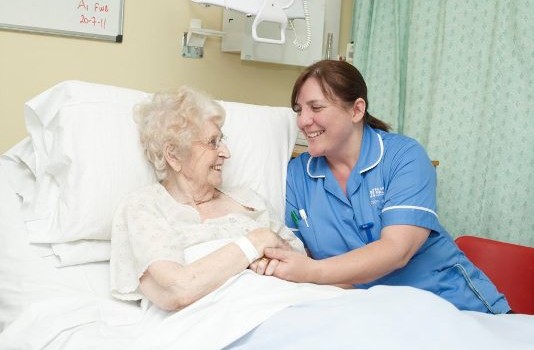Palliative care is all about caring for people who have an advanced, progressive and incurable illness so they can live as well as possible until they die.
Here at our Trust, we aim to promote a culture in which all patients, regardless of diagnosis and location, receive high-quality end of life care in a place of their choice, delivered by trained and informed healthcare professionals.
Patients will be supported in making decisions about their care. Families and carers will also be supported in an appropriate environment during the patient’s illness and in their bereavement.
Wendy Edwards, clinical nurse specialist in palliative care at Good Hope Hospital, says: “We provide end of life care education to doctors, nurses and therapists in a formal and informal setting, including state-of-the-art simulation training in end of life care. We have a dedicated team of staff providing palliative care to patients with a life limiting illness which is ward-based and within outpatients clinics.
“Caring for our patients at the end of life is everyone’s responsibility. Our palliative care team are here to help and will always offer advice and support.
“We are continually looking at ways of improving the palliative and end of life care we provide at our Trust to help our patients, their families and friends as well as health care professionals.”
If you have an advanced illness and coming to the end of your life, making plans in advance for the future of your care can really help.
Wendy adds: “It’s a good idea for people to say what their wishes are as early as possible as they approach the end of their life. This will help both emotionally and practically.
“Open and honest communication with family and friends is important, so that loved ones know how the person feels about them and also that they are aware of any plans that have been made. Health care professionals can support patients and families to have these difficult conversations.
“It’s also a good idea for people to consider thinking about their options at this time. Sometimes people choose to complete an advanced decision document highlighting their wishes for care and treatment options. This document is shared with health care professionals and family members so everyone knows what is important.
“We never know what kind of day we are going to have, but we feel privileged to be in this specialist nursing role and value the huge amount of job satisfaction that this work brings.”
For more advice and guidance on end of life care, visit the NHS choices website at www.nhs.uk.







